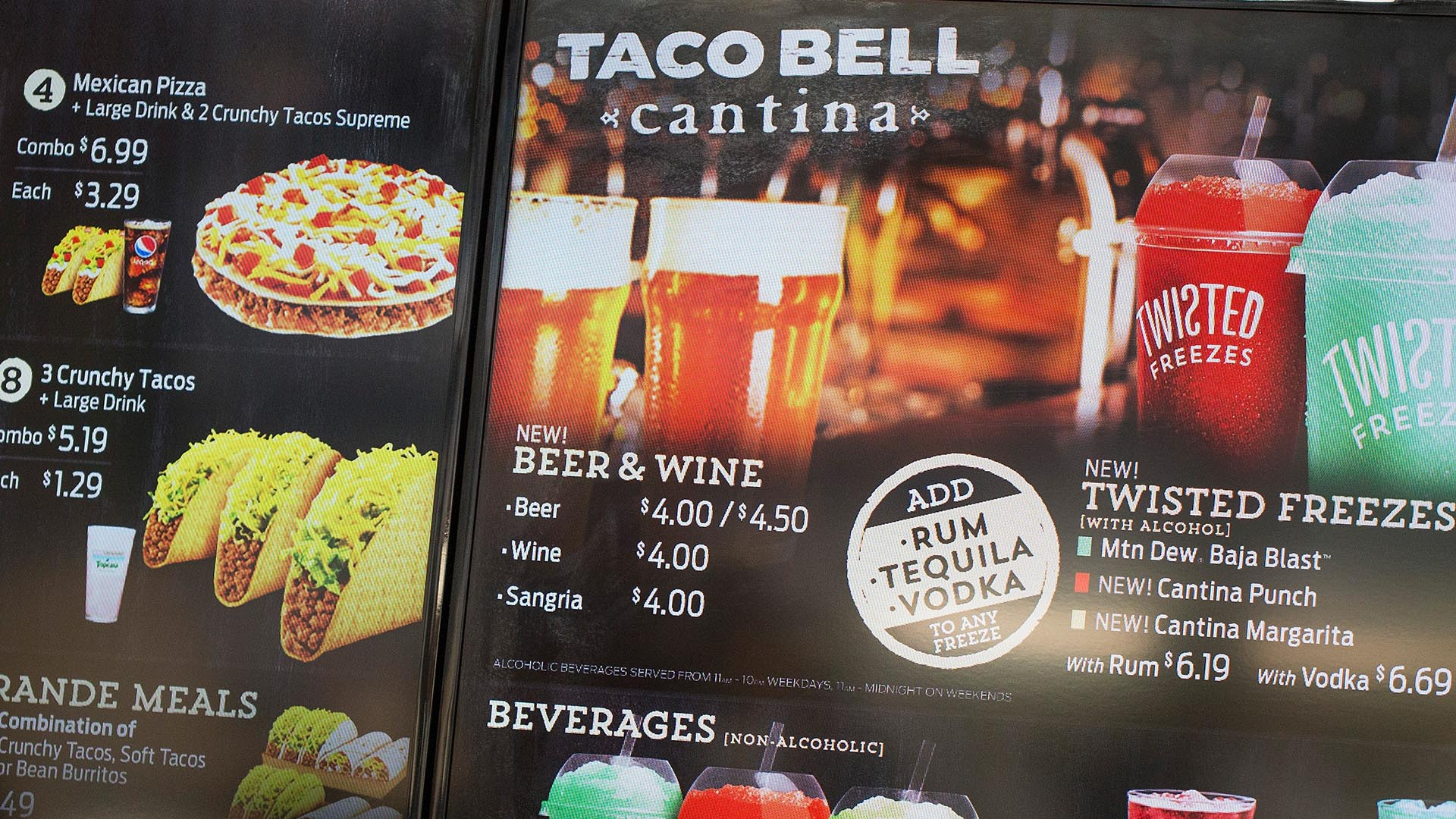Some NYC Taco Bell Cantinas Use Lower-Proof Booze To Spike Drinks [Updated]
Update, August 30, 2019: In a phone call with The Takeout, a Taco Bell spokesperson confirmed that some Cantina locations with beer and wine licenses (rather than full liquor licenses), specifically one on 8th Avenue in New York City, may use lower-proof alcohols as substitutes for distilled rum, vodka, or tequila. She notes, though, that "We never promote that we're selling distilled spirits at restaurants where we only have a beer or wine license." She says Cantinas that only have beer or wine licenses will increase the volume of alcohol used in those drinks to ensusre "guests are still getting the same ABV as the other Cantinas." The spokesperson further noted that Taco Bell Cantinas are working to "revamp" menu boards that may be confusing, and mentioned that Cantinas' alcoholic drinks are there to enhance the food rather than serve as the main attraction. "We didn't build cantinas to be a booze fest. That's not the experience we intended."
Original story, August 28, 2019: Over the last four years, Taco Bell's Cantina locations have allowed customers to mainline crunchy tacos and alcohol (largely in slushy form) in one convenient location. They've been hugely popular, with more than a dozen locations popping up in the U.S. to serve a weary nation the spiked Mountain Dew Baja Blast it craves. However, a recently published feature suggests that not every Cantina is delivering the boozy punch that customers expect.
Vinepair reports that in New York City, Cantina locations use lower-calorie, lower-alcohol versions of common cocktail fixings to prepare their drinks. Writer Cat Wolinski observed in one NYC location that "the alcohol options for spiking said frozen Margarita were not liquor, but lower-alcohol imposters. Instead of bona fide spirits, the touch-screen menu offered fermented vodka, fermented rum, and agave wine." Fermenting the spirits, rather than continuing on to the distillation process, leaves them with an overall lower alcohol content than traditional rum or vodka or tequila.
The feature calls out the lack of transparency about what type of alcohol is being used, pointing out that "other Cantina locations are reportedly serving traditional spirits in their drinks," and that the list of liquors included on Taco Bell's website "... is contrarily short and vague, listing only unbranded 80-proof rum, vodka, and tequila. In small, grayscale print under the big, bold 'Cantina Menu' title is the faint disclaimer: 'At participating locations only.'"
Wolinski suggests that the practice could be a means of skirting liquor licensing issues. In some states and municipalities that have separate liquor licenses for hard alcohol versus beer and wine, using the lower-proof alcohols would allow even beer and wine establishments to serve cocktails. New York does assign different licenses for different types of alcohol and/or types of establishments, which could explain the Cantinas' low-proof options. Regardless, this surely raises some questions, particularly for Cantina customers who in many cases probably assume they're drinking a slushy that includes hard alcohol.
Taco Bell has not replied to The Takeout's request for comment as of this article's publication.
